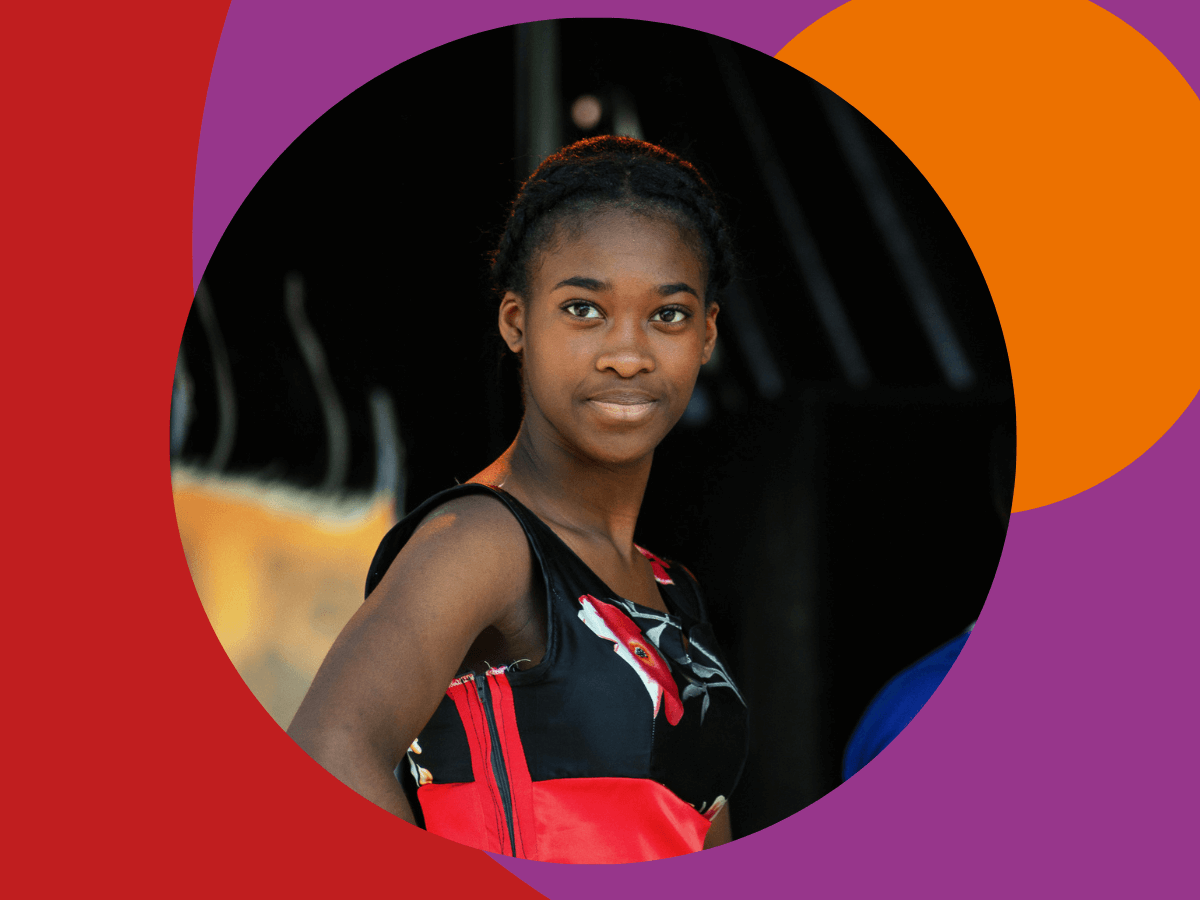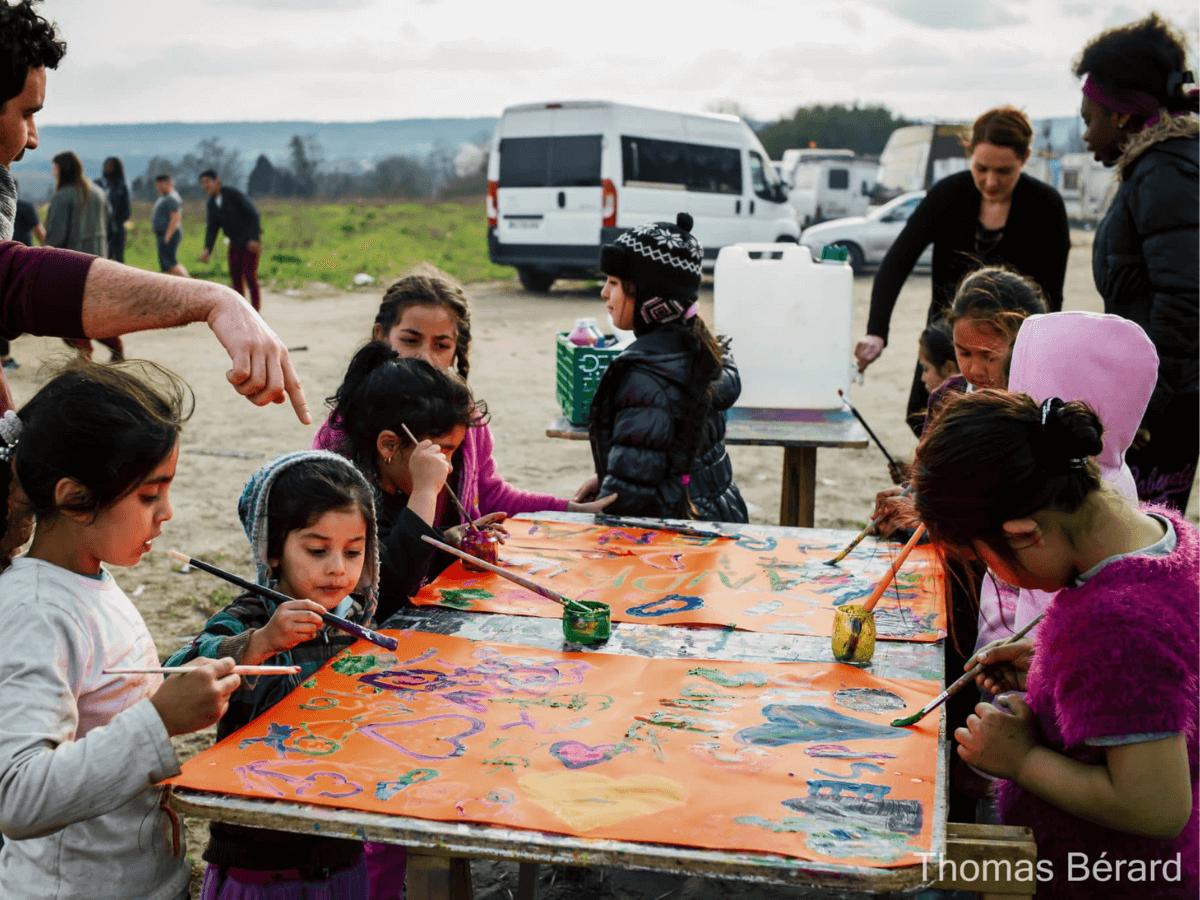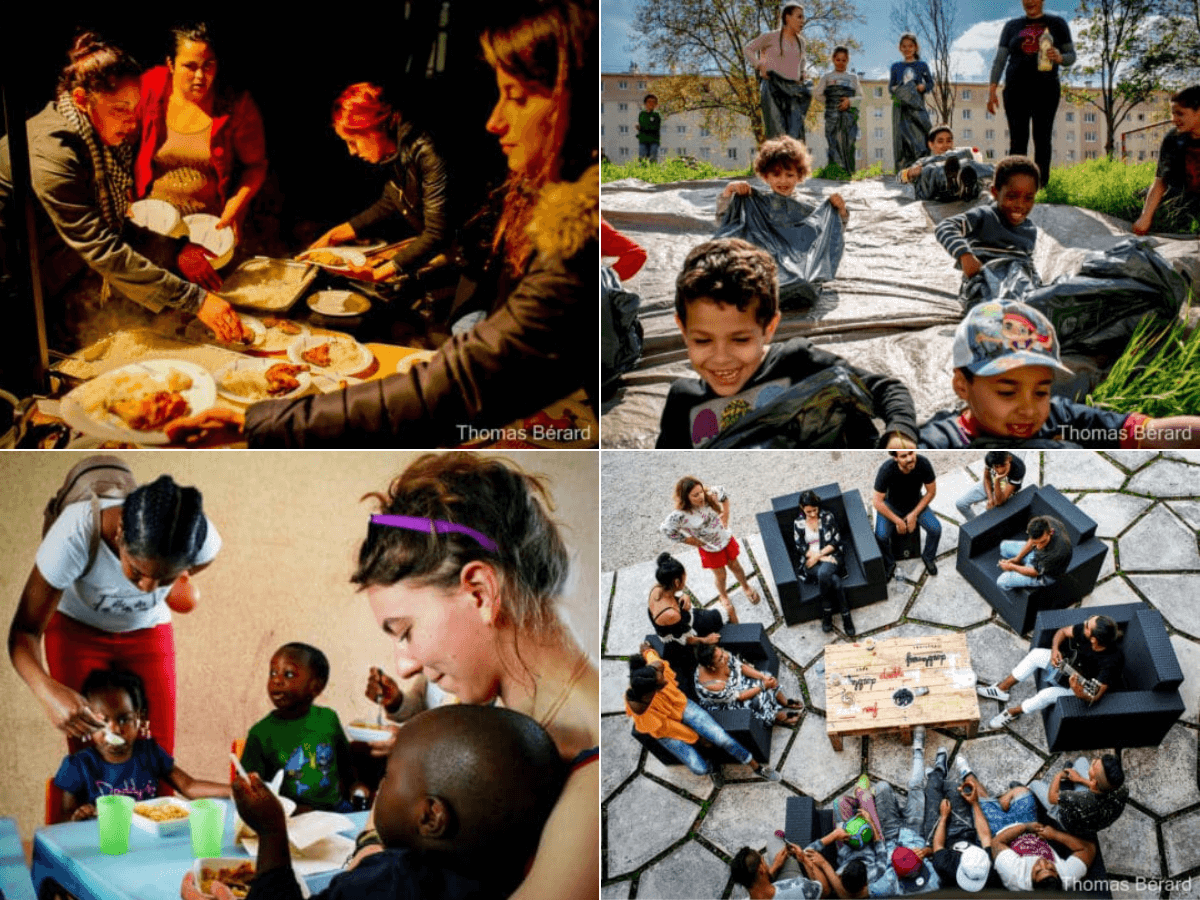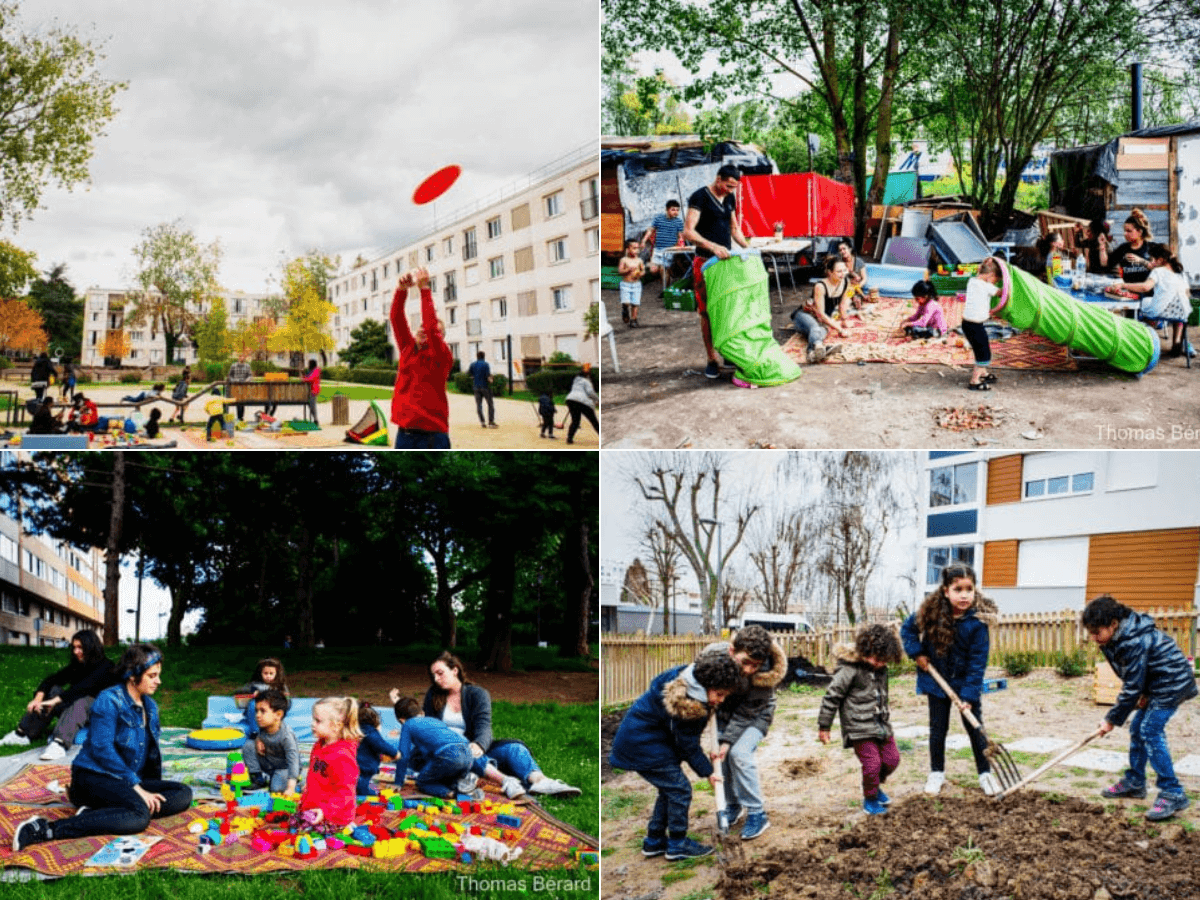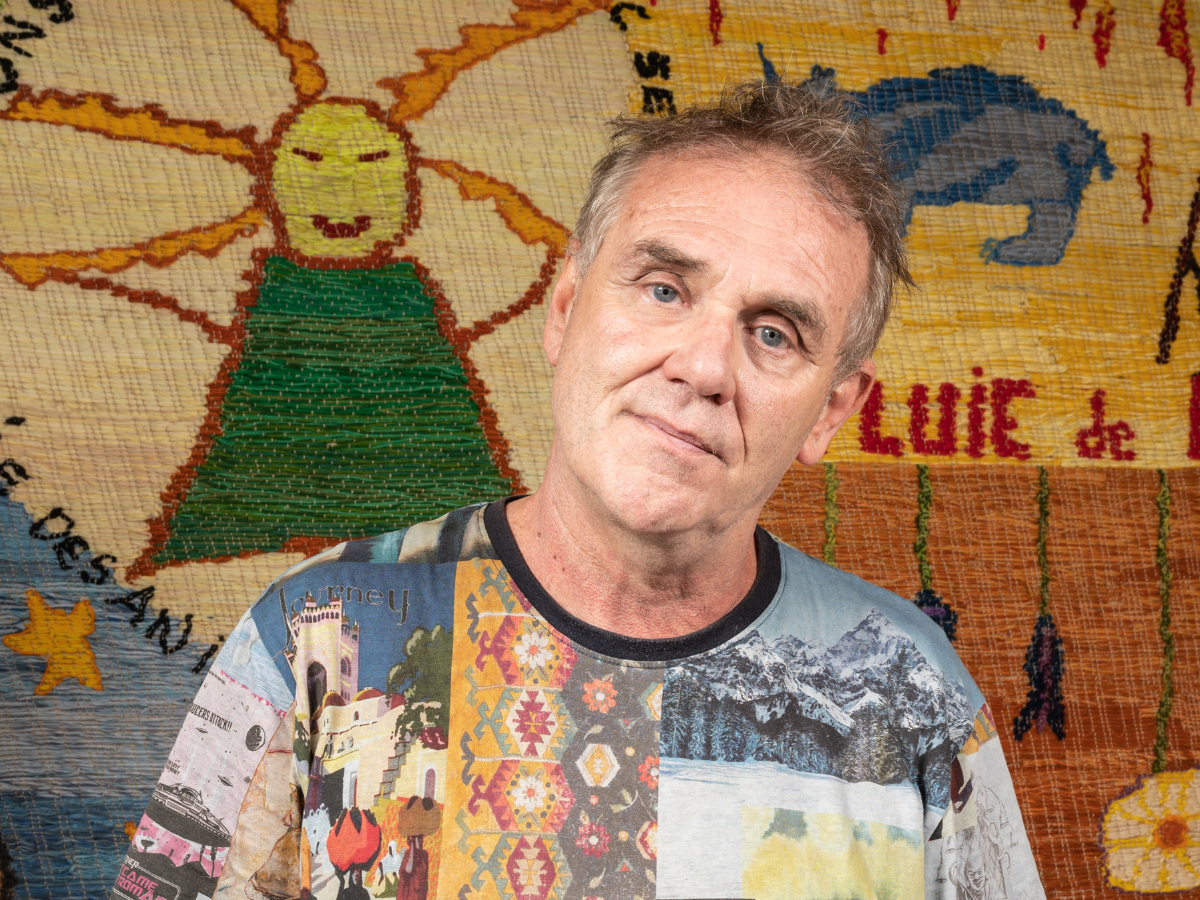*The civic service in France allows young people to support NGOs and other organizations for up to 12 months building their social and working experience.
Ph credits: Thomas Bérard

"Hafsatou was always dancing at our open-air workshops in the slums. Over the years, she has built on her passion and become a professional dancer. Today she performs with famous musicians, but as a teenager, she also supported us during her civic service*," says with a humbled smile Laurent Ott, the Director at Intermèdes Robinson, an NGO partner of The Human Safety Net for Families programme in France since 2018.
Each week the French NGO based in the southern outskirt of Paris organizes a full schedule of workshops in the slums, priority neighbourhoods, and social hotels. "We arrive in the afternoons at the parking lot or in one of the hotel's halls, roll out our carpets, pull out the materials, and start to prepare the workshops and activities. We cover 13 different locations each week from Tuesday to Sunday, including the Jardin de Bel Air, our urban garden, inaugurated with The Human Safety Net team in 2018," says Laurent, who coordinates with a team of more than 20 educators and volunteers. Last year, the NGO supported almost 1,000 people.
It's the children who bring the parents
As soon as the NGO team arrives, many kids run and welcome them. And it's the children who bring the parents with their siblings. Knowing that Intermèdes Robinson's team will be showing up at the same hour, the same day of the week, no matter what, gives these families - who live in very vulnerable conditions - a little security.
"Usually," says Laurent, "a team of at least three educators activate each workshop, and we can have up to 60 parents and children attending. Of course, we listen carefully to the requests of the families. We often prepare meals, paint, practice land-art to make the places they live more beautiful, repaint or fix some spaces that are not in good shape, sing, dance, play together, even do sports activities or theatre." In addition, the NGO's team supports children's homework and ensures they attend school lessons. And they deal with parents' legal, bureaucratic, or health problems.
Preparing meals together is the first step to establishing a connection with parents
Over the years, Laurent and his team have noticed that food preparation and eating together are vital for these families. So many of their activities focus on the family meal as the critical moment of sharing.
All this happens in the context of a positive socialization process. "Most often, these families' situation is so precarious that preparing a meal together gives these parents something to do and a reason to go on. For us, this is the first step for establishing a connection to support parents and children in bringing their life back on track," comments Laurent.
A positive impact in transforming the lives of families living in vulnerable contexts
"Since we started, we have seen many of these children not only completing the school but also joining us during their civic service. And so at this time, when they grow up, we can help them also in opening a bank account and address them with their vocational studies, learning a job or becoming a dancer like Hafsatou," concludes Laurent.
*The civic service in France allows young people to support NGOs and other organizations for up to 12 months building their social and working experience.
Ph credits: Thomas Bérard
Laurent Ott, director of Intermèdes Robinson, ph credit Marie-Lou Mauricio
Book your free entry to the exhibition
